News
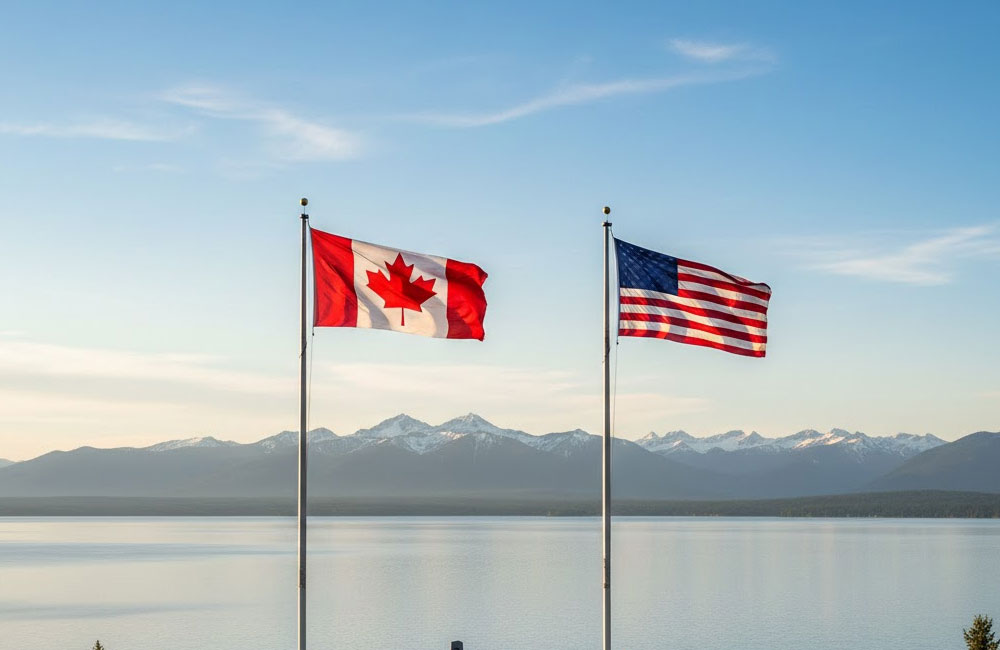
US House votes to rescind Trump tariffs on Canada
US House lawmakers voted on Wednesday (Feb 12) to reject Donald Trump’s tariffs on Canadian goods, sweeping aside the president’s last-gasp threat of election consequences for Republicans to deliver a rare rebuke on his signature economic policy.
The measure brought by Democrats was approved 219-211, with six Republicans joining the effort.
It remains largely a symbolic move.
The House can consider measures to end the national emergencies Trump declared last year to impose sweeping tariffs on imports from various countries.
But any action aimed at undoing Trump’s tariffs on Canada and other trading partners will still need US Senate passage and the president’s signature.
Even if it clears the Senate, it would face a certain veto by Trump, and Congress would unlikely muster the two-thirds majority needed to override a veto.
Trump sought to inject himself into the action at the last minute, issuing a direct political threat to lawmakers from his own Republican Party as the vote was taking place on the House floor.
“Any Republican, in the House or the Senate, that votes against TARIFFS will seriously suffer the consequences come Election time,” Trump posted on his Truth Social platform.
“TARIFFS have given us Economic and National Security, and no Republican should be responsible for destroying this privilege,” he added.
Wednesday’s rebuke comes after the expiration of a measure barring any vote on the issue of tariffs in the chamber - a move that has stifled opposition to Trump’s trade policy.
House Speaker Mike Johnson, a Trump ally in Congress, sought to renew this prohibition on Tuesday but was unsuccessful, as three House Republicans voted alongside Democrats to block the move.
Earlier on Wednesday, House Republican Don Bacon posted on social media that lawmakers “cannot & should not outsource our responsibilities”.
“As an old-fashioned Conservative I know tariffs are a tax on American consumers,” he added, noting that debates and votes on the issue should occur in the House.
Canada - like other US trading partners - has been hit by various waves of Trump’s tariffs since he returned to office early last year, tapping emergency economic powers to justify the duties.
Broad exemptions for Canadian goods however have softened the blow.
Trump may have imposed a 35 per cent tariff on many Canadian products last year, but he provided lower rates for energy imports and created sweeping exclusions for goods entering under the US-Mexico-Canada trade agreement (USMCA).
Trump’s separate sector-specific tariffs - especially on autos, steel and aluminium - have hit Canada hard.
But overall, more than 85 per cent of all bilateral trade has remained tariff-free under USMCA terms.
Trump’s country-specific tariffs, justified by emergency economic powers, have faced legal challenges too and the Supreme Court is due to rule on their legality in the near future.
While Trump has repeatedly touted tariffs as a positive development for the country, a Pew Research Center survey released this month indicated that 60 per cent of Americans disapprove of Trump’s higher tariffs.
BILL PASSED TO REQUIRE US CITIZENSHIP PROOF FOR VOTERS
The Republican-controlled House of Representatives also voted on Wednesday to require proof of US citizenship in the November midterm elections, which Democrats said would impose unnecessary burdens on American voters and concentrate electoral power in the hands of President Donald Trump.
Lawmakers voted 218-213 to approve the SAVE America Act, with only one Democrat joining Republicans to back the measure. The action sends the legislation on to the Republican-led Senate, where it is expected to receive a vote but unlikely to garner the 60-vote, filibuster-proof majority needed for passage.
The bill is the latest version of election legislation that first emerged during the 2024 presidential campaign, driven by Trump’s false claims that large numbers of people in the country illegally have been voting in federal elections. A similar measure passed the House twice - last April and in 2024 - only to die in the Senate.
The House vote came barely a week after Trump called for Republicans to “take over” elections in more than a dozen locations. The bill would require proof of citizenship when registering to vote in the midterms and would impose criminal penalties on election officials who register anyone without the required documentation.
Republicans also added a photo ID requirement for people casting ballots at the polls or via mail-in ballots in subsequent federal elections. They cited polls including a Pew Research Center survey showing that 83 per cent of voters, including 71 per cent of Democrats, back photo ID for voters.
REPUBLICANS WORRY OVER SPECIAL ELECTION LOSSES
House Speaker Mike Johnson described the bill as “common sense legislation to just ensure that American citizens decide American elections”.
But Democratic Party leaders say the legislation attempts to suppress the vote and undermine their electoral chances at a time when they are favoured by independent analysts to take control of the House. Republicans have been jarred by a string of Democratic special election wins, including one for the Texas state Senate viewed as a wake-up call.
“The SAVE America Act is part of a comprehensive Republican strategy to cement power this year. Speaker Johnson wants to make it harder for Americans to vote, easier for Washington Republicans to control how elections are run,” said Representative Joe Morelle, the top Democrat on the House committee that oversees elections.
It is already illegal for non-citizens to vote in federal elections. Independent groups on the left and the right, as well as state election officials, have found such voting to be extremely rare.
The left-leaning Brennan Center for Justice at New York University School of Law has warned that the SAVE America Act could deny the vote to millions of US citizens who lack ready access to passports, birth certificates and other documents that prove their citizenship.
Democracy advocates say the legislation is also part of a larger struggle between the Trump administration and state governments that has included the withholding of federal funds, the deployment of National Guard troops and the FBI search of a county election office in Georgia.
“We have checks and balances in place that include state and local officials acting as a check against federal overreach,” said Mai Ratakonda, program director of election protection at States United Democracy Center, a nonpartisan group that works to safeguard free and fair elections. “That’s what the federal government is trying to undermine.”
Republicans are also readying a second, broader election bill, called the Make Elections Great Again Act, which would mandate the use of paper ballots, restrict mail-in ballots and prohibit ranked-choice voting in federal general elections. It was examined at a hearing before the House Administration Committee on Tuesday.
(Source: Adaderana.lk)

Gold and silver prices increase once again
Gold and silver prices rose on Wednesday as the U.S. dollar and Treasury bond yields fell after data showed December retail sales growth stalled, signalling a softening economy ahead of key jobs data later in the day.
Spot gold was 0.7% higher at $5,056.82 per ounce by 0648 GMT. U.S. gold futures for April delivery gained 1% to $5,080.90 per ounce.
Spot silver was up 2.2% at $82.44 per ounce, after falling more than 3% in the previous session.
“Yields being lower are obviously supportive of gold today... After soft retail sales numbers, there’s the expectation that perhaps, further and deeper rate cuts may be needed more imminently than previously thought,” Capital.com senior market analyst Kyle Rodda said.
U.S. yields fell to near one-month lows after a raft of data suggested the economy may be softening, giving the U.S. Federal Reserve more room to cut interest rates. Lower U.S. yields reduce the opportunity cost of holding non‑yielding assets such as gold.
Investors expect at least two 25-basis-point rate cuts in 2026, with the first one expected in June.
They now await the release of the non-farm payrolls report for January, due later in the day, with a Reuters survey of economists showing a likely 70,000 increase in jobs last month after 50,000 jobs were added in December.
“Moves of more conviction from either gold or the dollar may be reserved until after the NFP release, with U.S. jobs data likely to factor into the Fed’s interest rate trajectory. Any softness in the jobs data for January could help gold’s rebound efforts,” KCM chief analyst Tim Waterer said in a note.
The U.S. dollar, edged down to a near two-week low on Wednesday, making greenback-priced metals cheaper for overseas buyers.
Spot platinum rose 1.4% to $2,116.25 per ounce, while palladium added 1.3% to $1,730.50.
Source:adaderana.lk
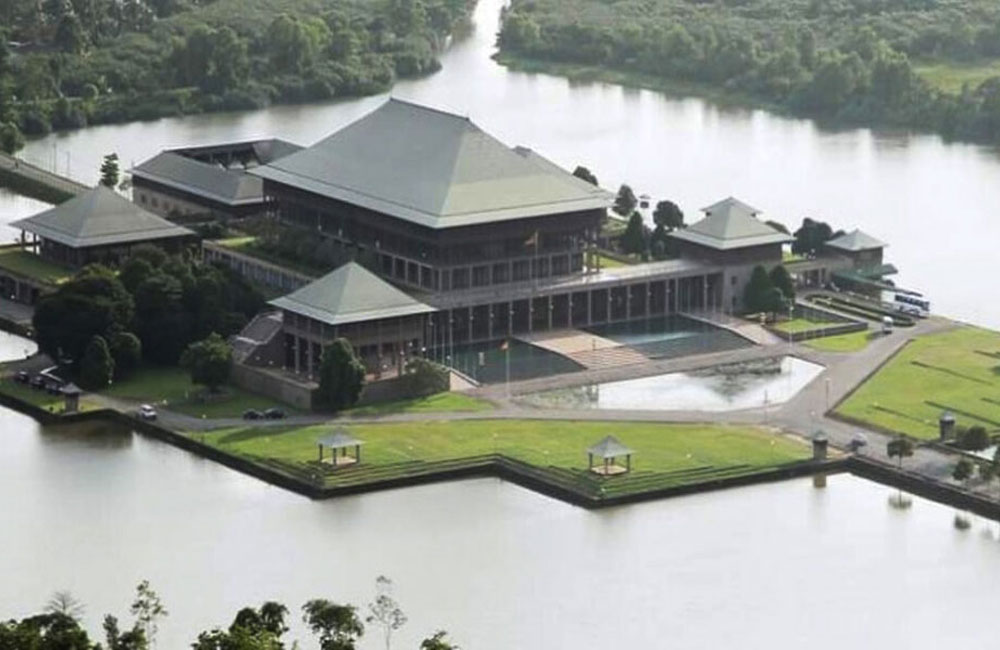
Committee Backs Bill to End Pension Scheme for MPs
A key parliamentary oversight committee has given its unanimous approval to a Bill aimed at scrapping pension entitlements for Members of Parliament.
Chair of the Sectoral Oversight Committee on Governance, Justice and Civil Protection, MP Najith Indika, confirmed that the proposal received full backing during a recent committee meeting.
Addressing the decision, MP Indika said the move aligns with a major commitment outlined in the current government’s policy statement. He noted that one of the pledges made ahead of the election was to eliminate the pension granted to MPs after serving only a limited period in Parliament.
The proposed legislation will repeal the Parliamentary Pensions Act No. 1 of 1977. If passed when it is presented in Parliament next week, MPs will no longer qualify for a pension following their parliamentary service.
MP Indika further stated that the reform is intended to reinforce the principle of public service in politics and contribute to a shift in political culture. He added that the measure reflects the government’s commitment to delivering on its promises and signals the direction it intends to take in the future.
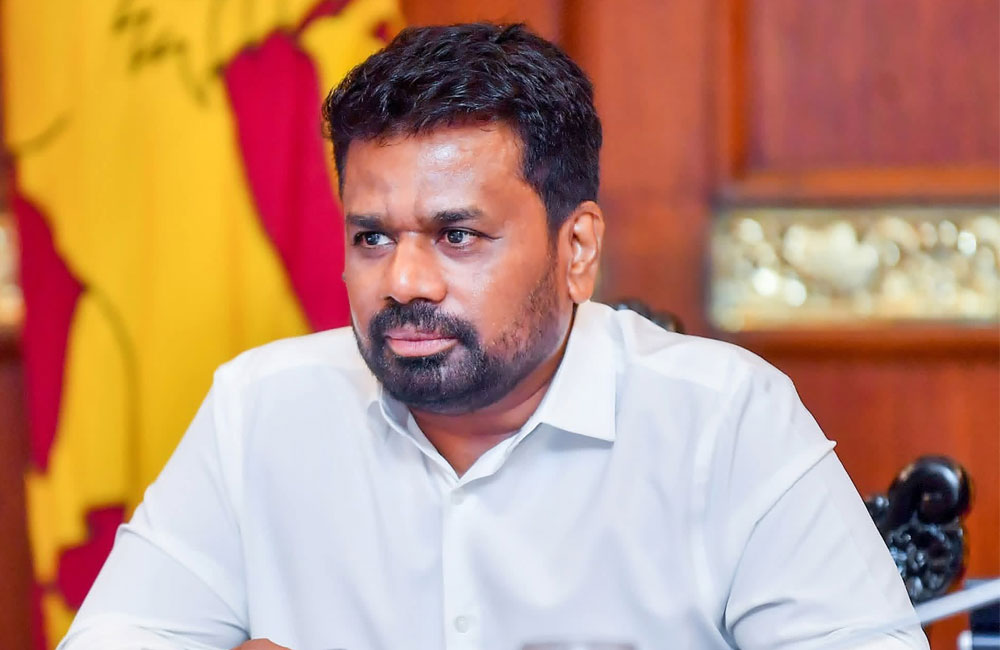
President to Launch ‘A Nation United’ Campaign in Nuwara Eliya
President Anura Kumara Dissanayake is set to travel to Nuwara Eliya today (11) to inaugurate the Central Province segment of the “A Nation United” national campaign, according to the President’s Media Division (PMD).
During his visit, the President is also expected to participate in several engagements in the area.
The “A Nation United” initiative was introduced as a nationwide effort to combat the spread of illicit drugs. Authorities have identified drug-related issues as a significant social challenge affecting communities in the up-country region.
The programme seeks to address this concern through a broad awareness drive involving multiple stakeholders, while also supporting the social and economic upliftment of affected communities, the PMD stated.
The event in Nuwara Eliya will further include a ceremony to honour 62 police officers in recognition of their active role in conducting drug-related raids
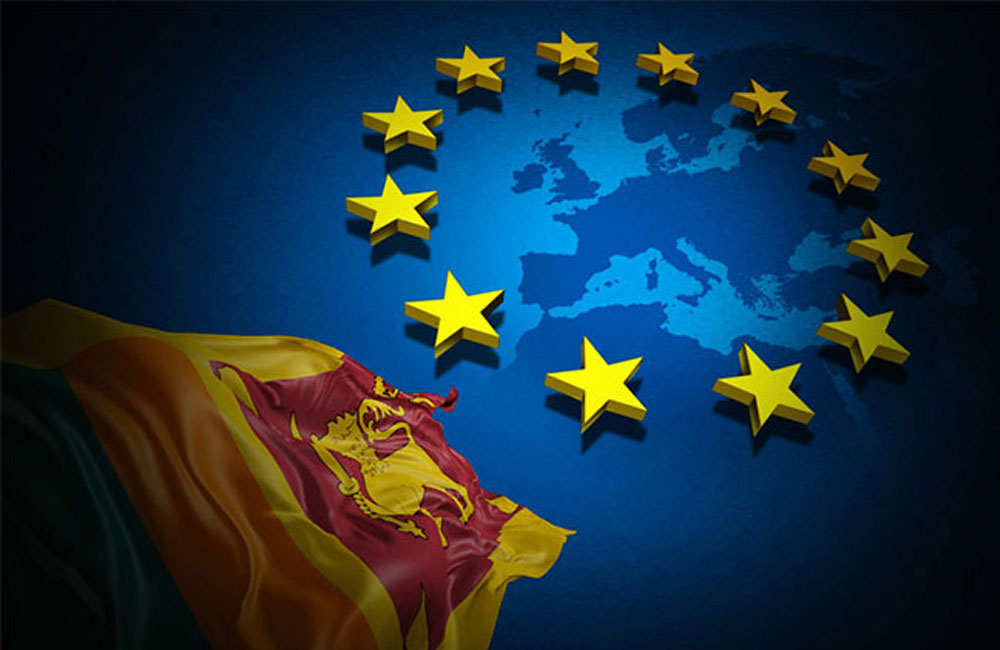
Colombo Hosts 27th EU–Sri Lanka Joint Commission Session
The 27th Session of the EU–Sri Lanka Joint Commission is taking place in Colombo today (12), bringing together high-level representatives from Sri Lanka and the European Union.
According to the Ministry of Foreign Affairs, the meeting will focus on assessing ongoing cooperation and identifying ways to further enhance collaboration in key sectors such as governance, human rights, trade, development assistance, and other bilateral and regional matters.
The session will be jointly led by Aruni Ranaraja, Secretary to the Ministry of Foreign Affairs, Foreign Employment and Tourism, and Paola Pampaloni, Acting Managing Director for Asia and the Pacific at the European External Action Service (EEAS).
In addition to the formal proceedings, members of the visiting EU delegation are scheduled to hold discussions with senior Sri Lankan leaders to outline practical steps and future initiatives aimed at deepening the longstanding partnership between the two sides, the Ministry stated.
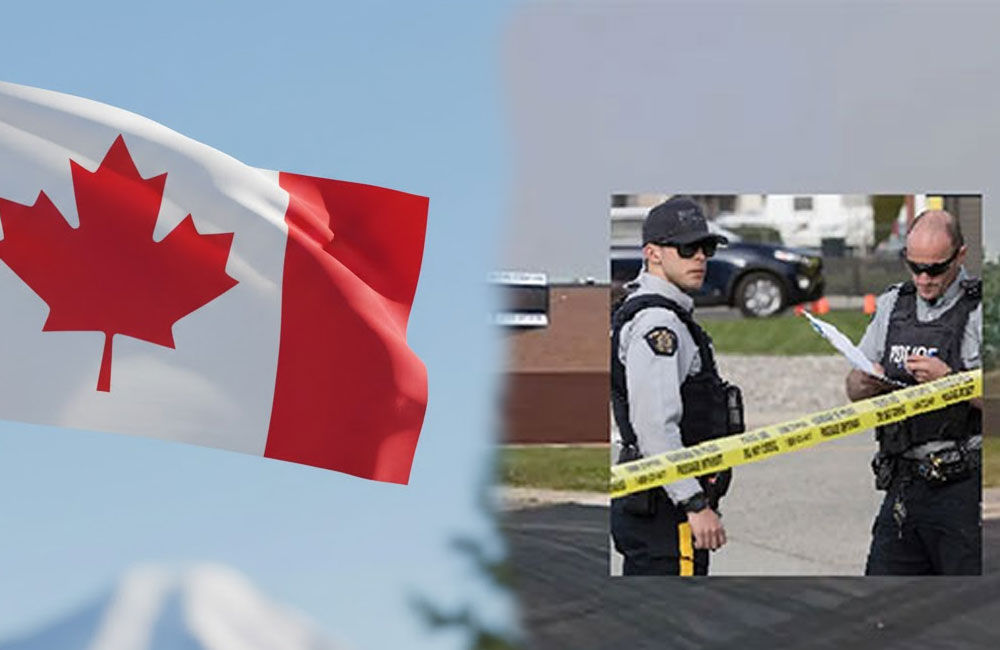
10 dead after mass shooting in British Columbia, Canada
Ten people, including a suspected shooter, were found dead after a mass shooting in a town in northeastern British Columbia on Tuesday, Canadian police said.
Six people were found dead inside a high school in Tumbler Ridge, two more people were found dead at a residence believed to be connected to the incident, and another person died on the way to hospital, the Royal Canadian Mounted Police said.
A suspected shooter was also found dead from what appears to be a self‑inflicted injury, police said, adding they did not believe there were any more suspects or ongoing threat to the public.
The shooter may have been a woman, as an official active shooter alert put out in British Columbia described the suspect as a female in a dress with brown hair.
“Multiple injuries and multiple deceased were inside the school as officers progressed through the scene,” police Superintendent Ken Floyd told a news conference.
“We have the scene secured right now. We have investigators there to try to determine the nature of the extent of the injuries and what weapons may or may not have been involved,” Floyd said.
Tumbler Ridge is a remote municipality with a population of around 2,400 people located in the foothills of the Rocky Mountains in northern British Columbia, approximately 1,155 km (717 miles) northeast of Vancouver.
Another 25 people were being assessed for injuries at a local medical center, said police.
“All our thoughts are with people in Tumbler Ridge. I’ve spoken to the mayor and local MLA, and we are offering the RCMP any additional assistance they need,” British Columbia’s Public Safety Minister Nina Krieger said in a statement on X.
Source:adaderana.lk

Heavy Showers Forecast in Several Provinces Today
Rainfall is expected to affect multiple parts of the country today (12), with the Department of Meteorology forecasting periodic showers in the Central, Uva, Eastern and North-central provinces, as well as in the Hambantota district.
According to the Met. Department, fairly heavy rain exceeding 50 mm is likely in isolated areas of Nuwara-Eliya, Matale, Badulla and Polonnaruwa districts. The Northern Province is also expected to experience several spells of showers throughout the day.
Elsewhere across the island, showers or thundershowers are anticipated in the afternoon, particularly after 2.00 p.m., with some locations likely to receive rainfall above 50 mm.
In addition, misty conditions are forecast during the early morning hours in parts of the Western, Sabaragamuwa, Central and North-western provinces, along with the Galle and Matara districts.
The Department has advised the public to remain cautious and take necessary precautions to reduce potential damage from temporary strong winds and lightning that may accompany thundershowers.
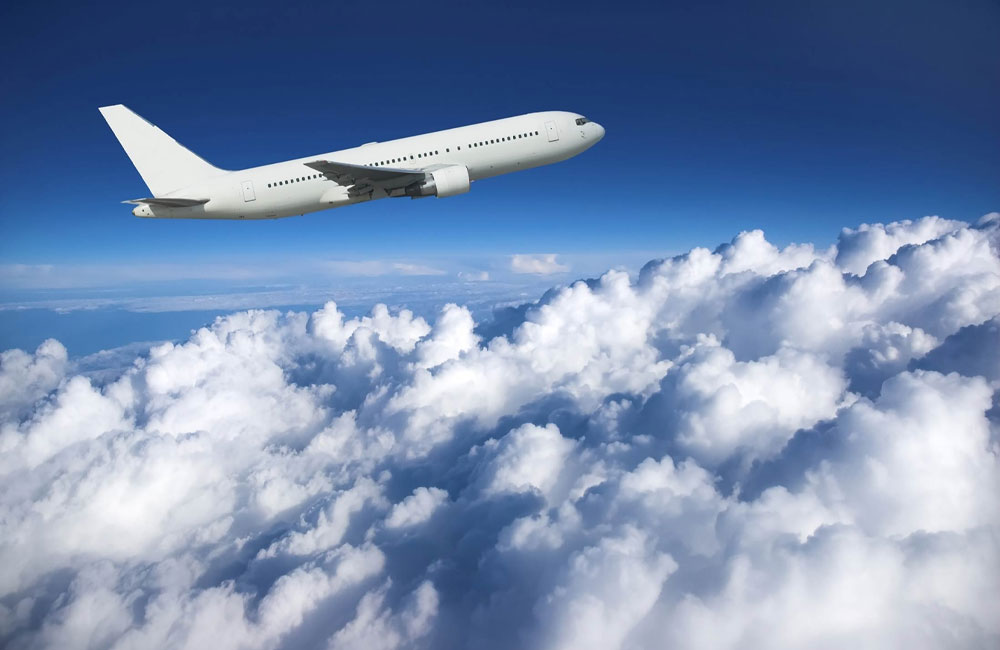
Direct Colombo–Ahmedabad Flights Planned from April
Steps are being taken to establish a direct flight connection between Colombo and Ahmedabad, India, with services expected to begin in April this year.
Deputy Minister of Tourism Ruwan Ranasingha announced that SriLankan Airlines is planning to operate the new route, linking Colombo with Ahmedabad in the Indian state of Gujarat.
According to the Deputy Minister, the introduction of this direct service will provide Sri Lankan devotees with easier access to Gujarat, enabling them to participate in religious pilgrimage activities. The initiative is also anticipated to strengthen tourism and travel ties between the two regions.
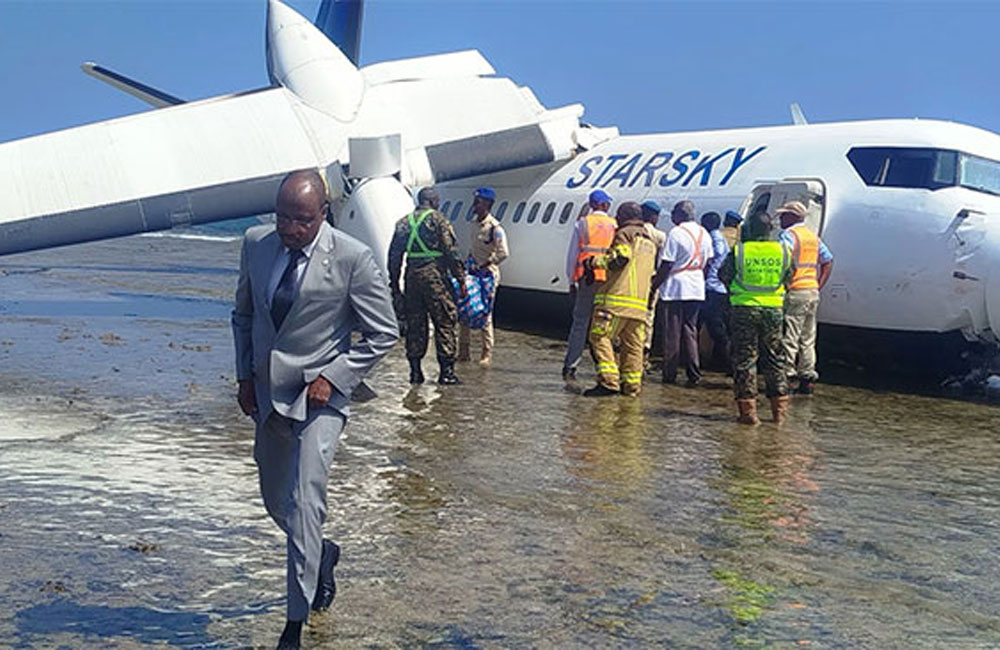
Plane carrying 55 passengers crashes into Indian Ocean just moments after take-off
A plane carrying 55 passengers has crashed into the Indian Ocean in a horrific incident just moments after taking off from Aden Adde International Airport.
Footage captured by a bystander showed the shocking moment the StarSky airline was involved in the incident near Mogadishu in Somalia.
Passengers were spotted jumping out of the plane after the aircraft hit the water off the Somali shoreline.
One of the StarSky plane’s wings was also snapped clean off, floating alongside the aircraft.
Rescuers arrived at the scene within minutes, later being filmed providing assistance to passengers.
Eyewitnesses have claimed that the flight took off shortly before crashing.
It was said to have been unable to gain altitude due to technical difficulties.
Locals had been walking along Jasiira beach when the plane was seen flying unusually low to the water.
Airport officials have confirmed that the StarSky plane attempted to return to Magodishu.
However, the aircraft veered off the runway when attempting to land.
“The priority was ensuring there was no post-impact fire, given the proximity to the water,” an airport official said.
“We are relieved to report that everyone on board was evacuated safely.”
The Somali Civil Aviation Authority (SCAA) has also confirmed the crash happened in the coastal area near the airport.
However, the SCAA added that all crew members and the plane’s 55 passengers had survived the incident.
A formal investigation is now underway to find the cause of the crash.
Officials briefly closed the Aden Adde International Airport.
However, the airport has now reopened, with normal operations resuming.
Source: Adaderana.lk
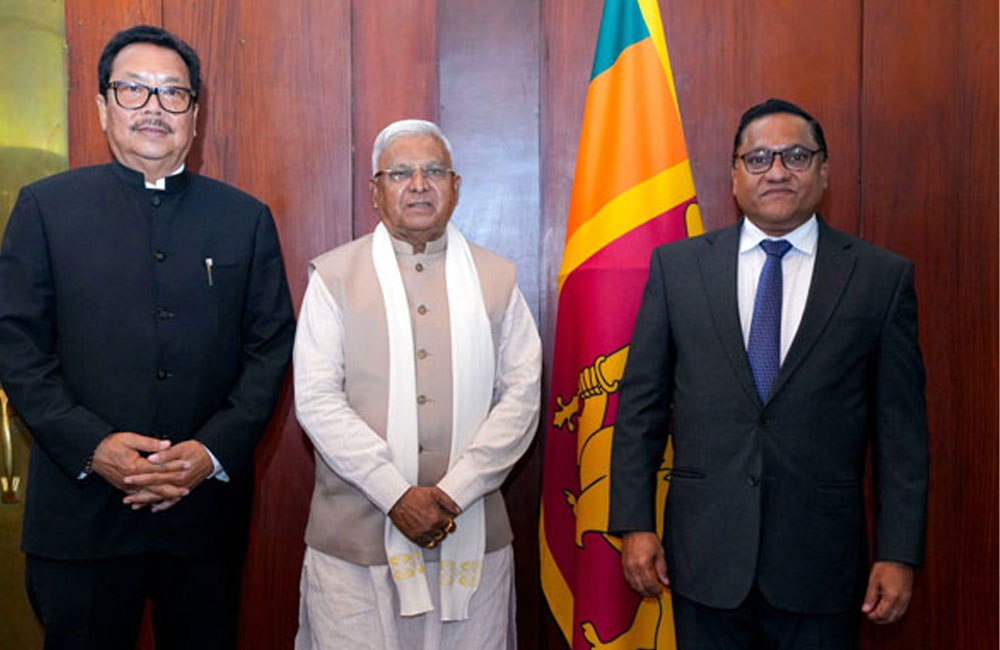
Sri Lanka Concludes Historic Devnimori Relic Exposition, Returns Relics to India
Sri Lanka has officially handed back the Sacred Devnimori relics of Lord Buddha to India after successfully hosting a seven-day exposition at the Gangaramaya Temple in Hunupitiya, Colombo.
Minister of Foreign Affairs, Foreign Employment and Tourism Vijitha Herath stated that the country was privileged to host the revered relics, giving devotees from across the island an opportunity to pay homage since February 05. The exposition concluded this morning.
In a message shared on X (formerly Twitter), Minister Herath confirmed that the relics were returned to India following the conclusion of the special display. He also noted that Mangubhai Chhaganbhai Patel, Governor of Madhya Pradesh, and Chowna Mein, Deputy Chief Minister of Arunachal Pradesh, met with him during their visit to Sri Lanka to oversee arrangements for the relics’ return.
Expressing gratitude to the Government of India, the Minister commended its close cooperation in organizing what he described as a landmark religious event. He said the exposition reflected the enduring civilizational links and strong cultural and religious bonds shared by the two nations.
According to Minister Herath, the occasion underscored the profound spiritual connection between Sri Lanka and India, rooted in their shared Buddhist heritage and the teachings of Gautama Buddha. He added that the successful hosting of the relics further reinforced friendship, goodwill, and mutual understanding between the peoples of both countries.
During the past six days, large numbers of devotees—including ministers, diplomats, and members of the public—visited the Gangaramaya Temple to venerate the sacred relics.
The Devnimori relics, discovered during archaeological excavations in the 1960s at the historic Devnimori site in Gujarat, India, had never previously been taken outside India before this exposition in Sri Lanka.
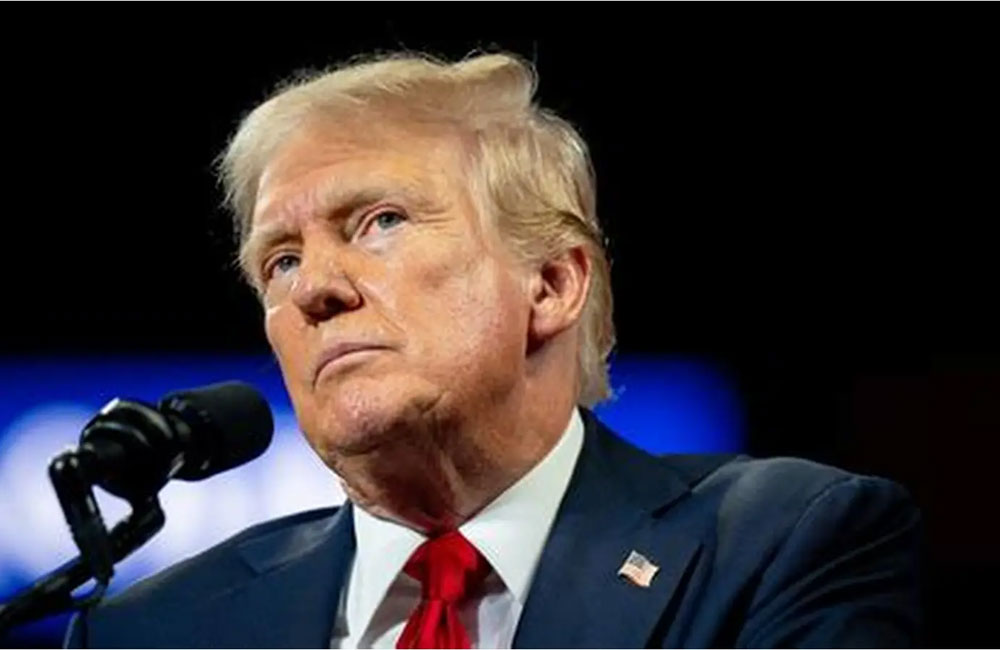
‘It would have been a nuclear war’: Trump again claims he stopped India-Pakistan conflict
US President Donald Trump has once again claimed that he had stopped a war between India and Pakistan last year, which he said could have escalated into a nuclear conflict, by using tariffs as leverage.
Speaking in an interview to Fox Business, Trump said he had settled “eight wars”, adding that at least six of them were resolved through the use of tariffs.
“If you don’t settle this war, I’m going to charge you tariffs, because I don’t want to see people getting killed,” he said, explaining his approach.
Referring to India and Pakistan, Trump claimed the situation had been extremely volatile. “It would have been a nuclear war, in my opinion. They were really going at it; 10 planes were shot down,” he said.
He further claimed that the Prime Minister of Pakistan had told him that Trump had “saved at least 10 million lives” by getting the two countries to stop fighting, asserting that tariffs played a decisive role in preventing escalation.
Trump has repeatedly taken credit for stopping the India-Pakistan conflict, making the claim more than 80 times since May 10 last year, when he announced on social media that the two neighbours had agreed to a “full and immediate” ceasefire following talks mediated by Washington.
India, however, has consistently denied any third-party intervention in de-escalating tensions.
India had launched Operation Sindoor on May 7 last year, targeting terror infrastructure in Pakistan and Pakistan-occupied Kashmir, in retaliation for the April 22 Pahalgam terror attack that killed 26 civilians.
Source: adaderana.lk
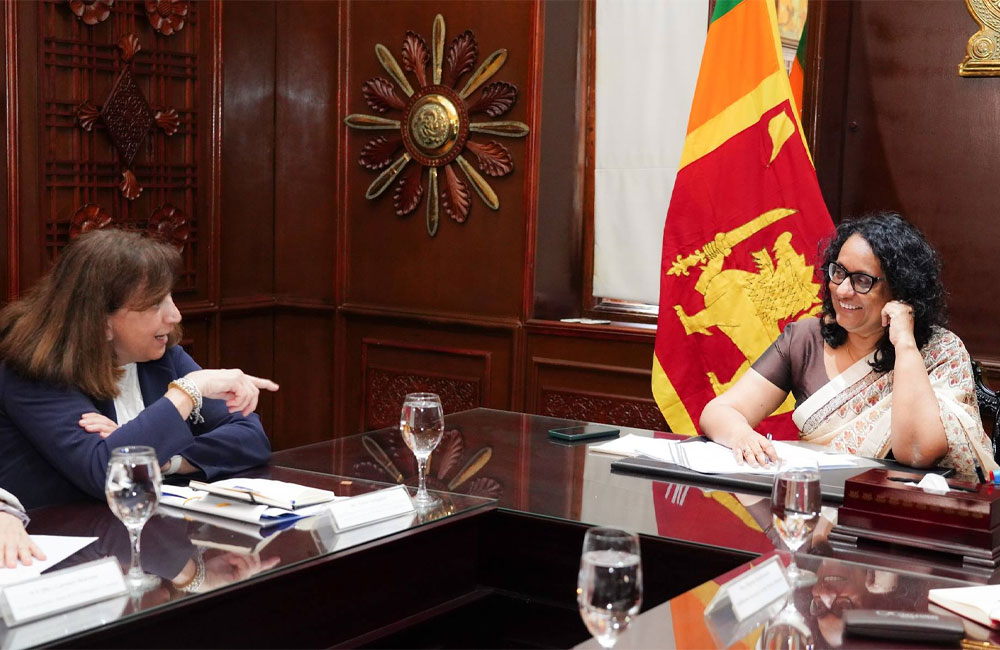
PM Amarasuriya Meets EU Delegation to Deepen Bilateral Cooperation
Prime Minister Dr. Harini Amarasuriya held discussions with a delegation from the European External Action Service (EEAS) at the Prime Minister’s Office, reaffirming Sri Lanka’s commitment to enhancing its partnership with the European Union.
The meeting centred on expanding collaboration in key areas such as economic engagement, trade, and investment. During the talks, the Prime Minister expressed appreciation for the European Union’s prompt assistance to Sri Lanka in the aftermath of the recent cyclone, as well as its continued support during challenging periods, according to the Prime Minister’s Office.
Meanwhile, Colombo is set to host the 27th Session of the EU-Sri Lanka Joint Commission tomorrow (12). The high-level forum will bring together senior representatives from both sides to review progress and explore further cooperation in governance, human rights, trade, development assistance, and other bilateral and regional matters, the Ministry of Foreign Affairs said in a statement.
The session will be co-chaired by Aruni Ranaraja, Secretary to the Ministry of Foreign Affairs, Foreign Employment and Tourism, and Paola Pampaloni, Acting Managing Director for Asia and the Pacific at the EEAS.
In addition to the Joint Commission meeting, the visiting EU delegation is scheduled to engage with senior Sri Lankan leaders to discuss practical steps and future initiatives aimed at strengthening the longstanding partnership between the two sides.
Page 16 of 683